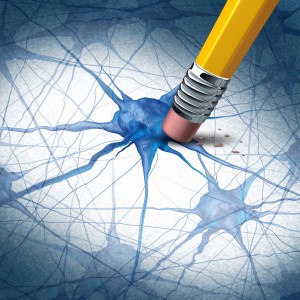A New Gene Called TBK1 May Contribute to ALS
Written by |

 Changes in a house-keeping gene that cleans up damaged proteins from cells may be in part to blame for Lou Gehrig’s disease, according to a study published online March 24 in Nature Neuroscience, titled “Haploinsufficiency of TBK1 causes familial ALS and fronto-temporal dementia.”
Changes in a house-keeping gene that cleans up damaged proteins from cells may be in part to blame for Lou Gehrig’s disease, according to a study published online March 24 in Nature Neuroscience, titled “Haploinsufficiency of TBK1 causes familial ALS and fronto-temporal dementia.”
Lou Gehrig’s disease is also called amyotrophic lateral sclerosis (ALS). The identified gene may be but one of many genes that could contribute to the devastating neurological condition.
Researchers have already found 29 gene mutations that may contribute to ALS, but these genes may be the culprits behind less than a third of all instances of ALS. ALS is a progressive disease in which nerve cells in the brain and the spinal cord degenerate. Specifically, the motor neurons are affected in ALS. As the motor neurons die, the brain can no longer control muscle movement. Voluntary muscle control deteriorates, and sufferers can eventually become completely paralyzed.
European scientists decided to identify more genes that might contribute to ALS. Led by Axel Freischmidt of the Department of Neurology, Ulm University, Germany, they examined DNA of 252 people with ALS and a family history of the disease, and also the DNA of 827 healthy people. They found eight mutations on a gene known as TBK1 (TANK-binding kinase 1) to be associated with ALS.
The normal function of the TBK1 is to create a protein responsible for the clean-up of cellular proteins. It also controls inflammation, which is a reaction to injury or infection. Coauthor Jochen Weishaupt, a neurologist at Ulm University in Germany noted “We do not know which of these two principle functions of TBK1 is the more relevant one.” When the researchers examined proteins coded for by the eight TBK1 mutations, the proteins were either missing or were unable to interact with other proteins as they normally do.
The scientists believe that TBK1 mutations may account for 2 percent of family-inherited ALS, which make up approximately 10 percent of all cases of ALS. The research group also found that the gene could be related to another neurological condition known as frontotemporal dementia.
Other groups have also identified TBK1 as a potential ALS gene. In a different study reported in February of 2015, TBK1 mutations were found in less that 2 percent of individuals with ALS in that study. However, the current study links the gene to family-inherited cases of ALS, whereas the study report in February indicates that the gene was associated with what is known as sporadic ALS. Sporadic ALS accounts for about 90% of all cases, is not inherited, and can affect anyone.
Further studies of the TBK1 are needed to confirm its association to ALS, however, the gene appears to be promising as another candidate that may be targeted in future treatments of the disease.





